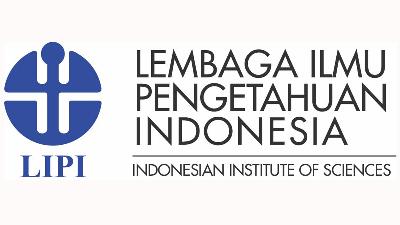Building Employee Engagement to Achieve the Vision and Mission of Satya Negara Hospital
Abstract
Keywords
Full Text:
PDFReferences
Agusty Ferdinand. Management Research Methods, Agency. Diponegoro University Publisher. Semarang. (2012).
Akimova, Irina. Development of Market Orientation and Competitiveness of Ukrainian Firm. European Journal of Marketing, p.1128-1146.
Amabile, Teresa, M dkk. Assesing The Work Environment for Creativity. Academy of Management Journal, p. 1154-1184.
Bakker dan Schaufeli. Job Demands, Job Resources, And Their
Relationship with Burnout and Engagement: A Multi-Sample
Study. Journal of Organizational Behavior. (2004).
Bakker dan Schaufeli. Job demands and job resources as predictors of absence duration and frequency. Journal of
Vocational Behavior. (2003).
Bakker dan Schaufeli. Work engagement: An emerging concept
in occupational health psychology. Journal of Managerial
Psychology. (2008).
Bakker dan Demerouti. The job demands-resources model:
Stateof the art. Journal of Managerial Psychology. (2007).
Bharadwaj, Sundar G, P.R. Varadarajan, dan Jihn Fahy. Sustainable Competitive Advantage in Service Industries: A Conceptual Model and Research Propositions. Journal of
Marketing, Vol.57, Oktober, p. 83-99. (1993).
Bernthal, Paul R. Measuring Employee Engagement. Research of
Development Dimensions International, Inc. (2006).
Bryson & Alston. Creating and Implementing Your Strategic Plan; A Workbook for Public and Nonprofit Organizations, John
Willey & Sons Inc., USA. (2005).
Calantone, Roger J, Benedetto, C. Anthony dan Bhoovaraghavan, Sriraman. Examining the Relationship between Degree of Innovation and New Product Success. Journal of Business Research, p. 143 – 148. (1994).
Craven, David W. Strategic Marketing. Volume 1, A Translation, Erlangga, Jakarta. (1996).
Droge, Cornelia dan Shownee Vickery. Source And Outcomes of Competitive Advantage: An Explanatory Study in The Furniture Industri. Decision Sciences, p. 669 – 689. (1994).
Day, G. S., & Wensley, R. Assesing Advantage: A Framework for Diagnosing Competitive Superiority. Journal of Marketing, p. 1-20. (1988).
Despande, R., Farley, J. U., & Frederick E. Webster, J. Coorporete Culture, Customer Orientatio, and Innovativeness in Japanesse Firm. Journal of Marketing, p. 23-27. (1993).
Ferdinand, Augusty. Marketing Management: A Strategic Approach. Research Paper Series. No. 01 Master of Management Program at Diponegoro University (March). (2000).
Gallup. Study Engaged Employees Inspire Company Innovation. Gallup Management Journal. (2004).
Gatignon, Hubert dan Jean – marc Xuereb. Strategic Orientation of the Firm and New Product Performance. Journal of Marketing Research. p.77 – 79. (1997).
Gibson, James L., Ivancevich, John M., Donnelly Jr., James H. Organizations: Behaviour, Structure, and Process, 10th edition. McGraww-Hill Boston. (2000).
Hair, Joseph F. JR., Rolph E. Anderson, Ronald L. Tatham, William C. Black. Multivariate Data Analysis with Readings, 4th Edition. Prentice Hall, New Jersey. (1995).
Hughes dan Rog. Talent Management, A Strategy for Improving Employee Recruitment, Retention, and Engegement within Hospitality Organization. International Journal of Contemporary Hospitality Management. (2008).
Hunt, J. B., and Wallace, J. A Competence – based approach to Assesing Managerial Performance in Australian Context. Asian Pacific Journal of human Resources, p. 52 -66. (1997).
Han., Jin K. Srivastara. Contomer-led and Market Oriented Let’s Not Confuse the Two. Strategy Management Journal. pp. 1001- 1008. (1998).
Jaworski, B. J, & Kohli, A. K. Market Orientation: Antecedents and Consequences. Journal of Marketing, p. 53-70. (1993).
Kaplan, Robert S. and David P. Norton. Balanced Scorecard: Putting strategy into action. Erlangga, Jakarta. (2000).
Kohli A. K., & Jaworski, B. J. Market Orientation: The Construct, Research Proposition, and Managerial Implication. Journal of Marketing, pp. 1 – 18. (1990).
Kotler, Philip. Dan Keller, Kevin. Marketing Management Edition 13: Marketing, Management, Third Edition. Jakarta: PT Gelora Aksara Pratama. (2009).
Li, Tiger dan Calantone, Roger J. The Impact of Market Knowledge Competence on New Product Advantage: Conceptualization and empirical Examination. Journal of Marketing, p. 13 – 29. (1998).
Li, Ling X. An Analysis of Sources of Competitiveness and Performance of Chinese Manufacturers. International Journal of Operation and Production Management, Vol.20, No.3. (2000).
Lukas, Bryan A., and O.C. Ferrel. The Effect of Market Orientation on Product Inovation. Journal of The Academy Marketing Science. No. 2 Vol. 28 p. 239-247. (2000).
Margaretha, Meily, Saragih, Susanti. Employee Engagement: Efforts to Improve Organizational Performance Article in the 2nd National Conference UKWMS, Maranatha Christian University, Bandung.
Mintzberg. The Rise and Fall of Strategic Planning. Prentice Hall, Great Britain. (2000).
Napier, et al. High Impact Tools and Activities for Strategic Planning. McGraw Hill Company, New York. (1998).
Nurofia, Fifi. Getting to know Employee Management. Journal of Psychology Maranatha University. (2009).
Porter, Michael, E. Competitive Strategy. The Free Press, New York. P. 20. (1990).
Robert, F. Hurley and G. Thomas, M. Hult. Innovation, Market Orientation, and Organization Learning: An Integration and Empirical Examination. Journal of Marketing. Vol. 62 Juli 1998. Pp. 42-54. (1998).
Rifaldi Zulkarnaen. Caring Behavior Factor Analysis of Implementing Nurses at Haji Hospital Surabaya based on Gibson Performance Theory. Thesis for Nursing Education Study Program, Faculty of Nursing UNAIR. (2017).
Robbins, Stephen P & Timothy A. Judge, Organizational Behaviour, (terjemahan Angelina, Diana). Salemba Empat Jakarta. (2008).
Robinson dan Hayday. The Drivers of Employee Engagement Report 408. Brington: Institude for Employement Studies. (2004). [40] Samsul Arifin, et, all. The Influence of Discipline, Competence,
and Work Motivation on Employee Performance, Mayjend Sungkono University, Mojokerto, ISSN 2540-959. Global journal vol.02, No.01. (2017).
Sandy d, Jap. Pie-Expansion Efforts: Collaboration Processes in Buyer Supplier Relationship. Journal of Marketing Research Vol. XXXVI November 1999, pp 461-475. (1999).
Sekaran, Uma. Research Methods for Business. Third Edition. Southern Illionis University. (1992).
Slater, S. F. and Narver, J. C. Market Orientation and The Learning Organization. Journal of Marketing. Vol. 59 p.63-74. (1995).
Suharsimi Arikunto, Dr. Research Procedure A Practical Approach. Jakarta: Rineka Cipta. (2013).
Susanto A. B. Revealing the Secret of Employee Engagement. BNI Sinergi 46 Magazine, XVIII/ edition, August. (2008).
Trisnantoro. Strategic Aspects of Hospital Management; Between Social Mission and Market Pressure. Andi Offset, Jogjakarta. (2005).
Refbacks
- There are currently no refbacks.

This work is licensed under a Creative Commons Attribution 3.0 License.
Supported by :


 Indexed by :
Indexed by :




